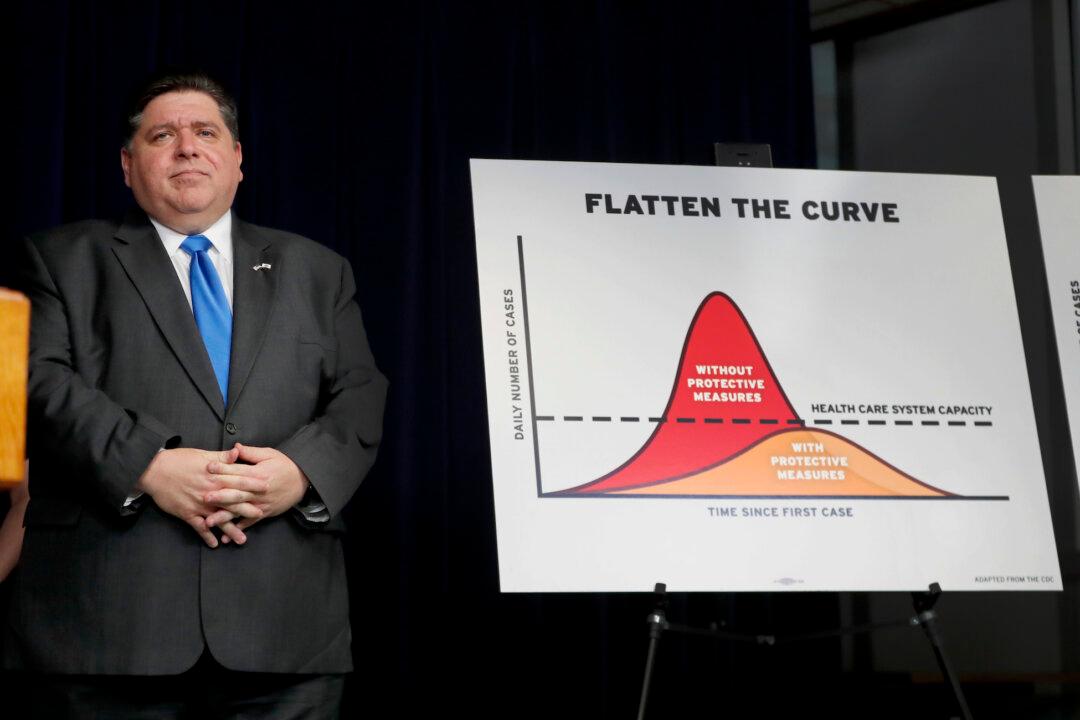The Justice Department has expressed its support for a lawsuit that argues Illinois Gov. J.B. Pritzker exceeded his authority in imposing sweeping stay-at-home orders to curb the spread of COVID-19.
The Department of Justice (DOJ) on Friday filed a statement of interest in the case against Pritzker, saying the protective measures meant to mitigate the outbreak of the deadly bug go beyond the governor’s remit.





